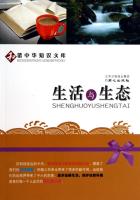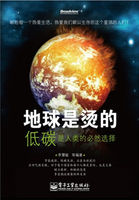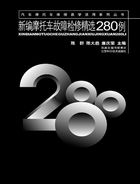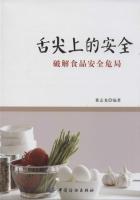Chiriboga,M.(2002)," Latin American NGOs and the IFIs:the Quest for a South‐determined Agenda",in J.A.Scholte and A.Schabel(eds.),Civil Society and Global Finance.Routledge,London,pp.39‐58.
Chowdury,A.and Setiadi,G.(2002),Macroeconomic Aspects of Poverty and Health in Indonesia,Working Paper No.02/06,United Nations Support Facility for Indonesian Recovery(UNSFIR),Jakarta,July.
Clark,J.(1991),Democratizing Development:The Role of Voluntary Organizations.Earthscan,London.
Colletta,N.J.(2003),Human Security,Poverty and Conflict:Implications for IFI Reform,paper for the Commission on Human Security,Harvard University,Cambridge,MA,January,2003.
Department of Foreign Affaires and International Trade of Canada (1999),Human Security:Safety for People in a Changing World,concept paper prepared by Canadian Department of Foreign Affaires and International Trade,Ottawa,April.
Dhume,S.(2003),"Indonesia:Calling the IMF",Far Eastern Economic Review,23 January,pp.24‐25.
Di Maggio,P.J.and Anheier H.K.(1994)," The Sociology of Non‐Profit Organizations and Sectors",in S.M.Oster(ed.),Management of Non‐ Profit Organizations.Dartmouth,Brookfield,USA,pp.187‐204.
Easterly,W.(1999)," Life During Growth ",Journal of Economic Growth, 4/3 ∶234‐258.
El Badawi,I.(1999),Civil Wars and Poverty:The Role of External Interventions,Political Rights and Economi Growth,paper for the World Bank Development Economic Research Group Conference on Civil Conflicts,Crime and Violence,Washington D.C.
Fowler,A.(1997),Striking a Balance:a Guide to Enhancing the Effectiveness of NGOs in International Development.Earthscan,London.
Friedmann,J.(1992),Empowerment:The Politics of Alternative Development.Oxford:Blackwell,1992.
Hadiwinata,B.S.(2002),Politik Bisnis Internasional.Penerbit Kanisius,Yogyakarta.
Hadiwinata,B.S.(2003),The Politics of NGOs in Indonesia:Develo ping Democracy and Managing a Movement.Routledge‐Curzon,London and New York.
Hampson,F.O.and Zacher,M.W.(2003),Human Security and International Collaboration:Some Lessons from Public Goods Theory,paper for the Commission on Human Security,Harvard University,Cambridge,MA,January.
Hodgkinson,V.A.and Sumariwlla,R.D.(1992)," The Non‐Profit Sector in the Global Community:Issues and Challenges",in V.A.Hodgkinson et al.(eds.),The Non‐profit Sector in the Global Community:Voicesfrom Many Nations.San Francisco:Jossey‐Bass Publishers,pp.484‐497.
Hulme,D.(1994),"Social Developmeent Research and the Third Sector:NGOs as Users and Subjects of Social Inquiry",in D.Booth(ed.),Rethinking Social Development:Theory,Research and Practice.Longman,London,pp.46‐71.
Jorgenson,L.(1996),"What are NGOs Doing in Civil Society?",in A.Clayton(ed.),NGOs,Civil Society and the State:Build in g Democracy in Traditional Societies.INTRAC,Oxford,pp.87‐113.
Killick,T.(1995),IMF Programmes in Developing Countries.Routledge,London.
Lane,M.(1999)," Mass Politics and Political Change in Indonesia",in A.Budimanetal.(eds.),Reformasi:Crisis and Change in Indonesia,Monash Papers on Southeast Asia No.50.Monash Asia Institute,Monash University,Australia,pp.268‐278.
Lehmann,D.(1990),Democracy and Development in Latin A merica:Economics,Politics and Religion in the Postwar Period.Polity Press,Cambridge.
Leite,S.P.(2001)," Human Rights and the IMF",Finance and Development,A Quarterly Magazine of the IMF,38/4:31‐34.
Michael,S.(2002),The Role of NGOs in Human Security,paper for the Commission on Human Security,Harvard University,Cambridge,MA,May.
Miller,B.(2001)," The Concept of Security:Should it be Redefined?",The Journal of Strategic Studies,24/1:20‐35.
Nandika,M.(2001), Implementasi Kebijakan Bnak Duniadalam Menang gulangi Kemiskinan di Indonesia Melalui Program Jaringan Pengaman Sosial.B.A.thesis,Parahyangan Catholic University,Bandung,Indonesia.
Narayan,D.et al.(2000),V oices of the Poor:Can Anyone Hear Us? Oxford:Oxford University Press.
Sen,A.(1999),Development as Freedom,Alfred,A.Knopf,New York.
Setiawan,B.(2000),"Analisis Terhadap Reposisi Peran ORNOP Pasca Rejim Suharto",in INFID,Perjuangan Demokrasidan Masyarakat Sipil:Reposisi Peran OR NOP/LSMdiIndonesia,INFID,Jakarta,pp.112‐135.
Stiglitz,J.(2002),Globalization and Its Discontents,W.W.Norton & Company,New York and London.
Storey,A.(2000),The World Bank's Discursive Construction of Rwanda:Poverty,Inequality and the Role of the State,working paper No.1,School of Sociology and Social Policy,Queen's University,Belfast.
Tadjoeddin,M.Z.(2002),Anatomy of Social Violence in the Context of Transition:the Case of Indonesia 1999‐2000,working paper No.02/02‐E,United Nations Support Facility for Indonesian Recovery,Jakarta,April.
Ullman,R.(1983)," Redefining Security",International Security,8/1,Summer, pp.68‐86.
UNDP(United Nations Development Program)(1994),Human Development Report.Oxford:Oxford University Press.
"UPC Galang Aksi Melawan Pemda DKI",Kompas Daily News paper,14 August 2001.















